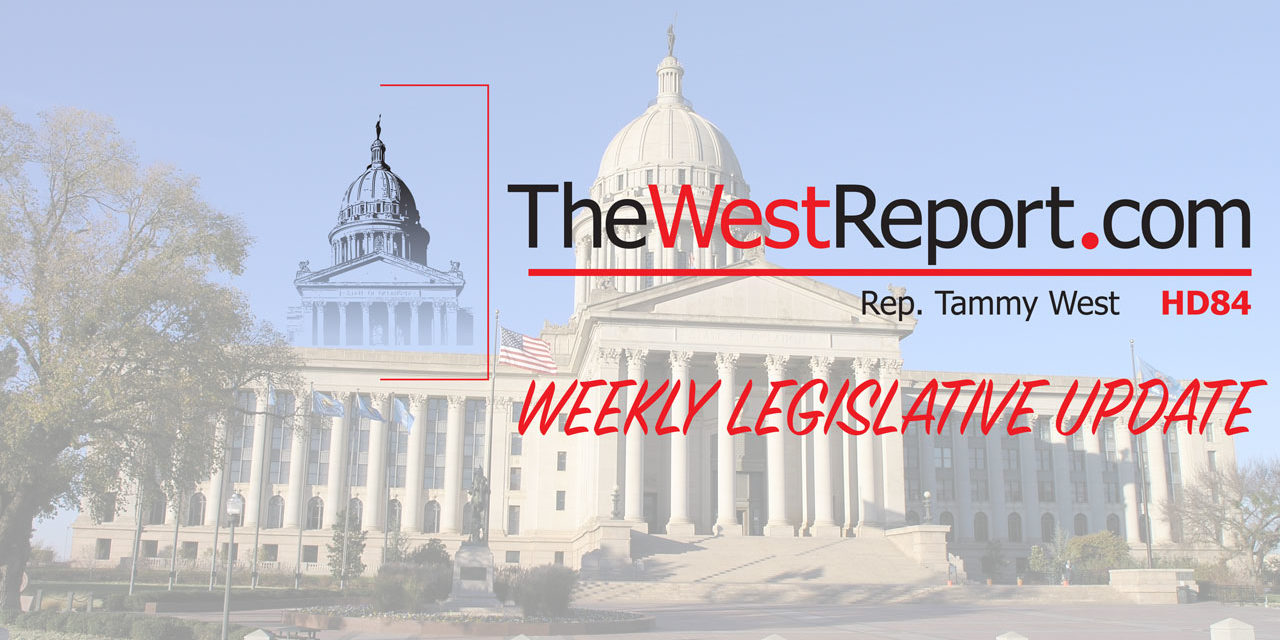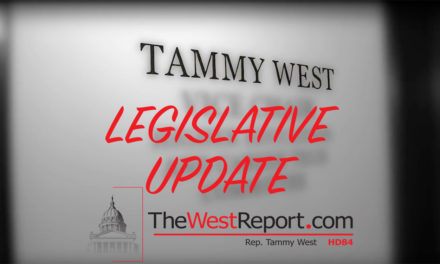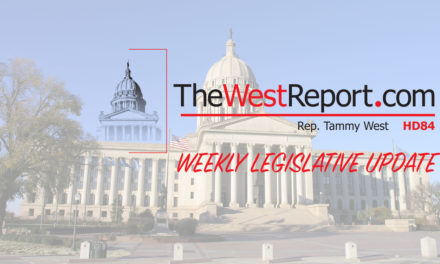House Proceeds After ‘Step Up’ Plan Fails To Receive Necessary Votes
House members voted on House Bill 1033XX on Feb. 12. The legislation was the main revenue portion of the ‘Step Up Oklahoma’ plan and included tax increases on tobacco products, motor fuel, the wind industry and the gross production tax. Lawmakers voted 63-35, and the bill failed to receive the 75 percent approval necessary for revenue-raising measures.
In light of the ‘Step Up’ vote tally, House and Senate JCAB approved House Bill 1020XX on Feb. 15. The bill enacts 0.67 percent cuts to all agencies for the remainder of FY18.
Lawmakers in JCAB also approved House Bill 1021XX, providing legislative intent that the Department of Human Services fully fund the Advantage Home and Community-based Waiver Program, Money Follows the Person, Homeward Bound Waiver, In-home Supports, Intensive In-home Service, Advantage Waiver, Personal Care and state-funded community residential and vocational services within DHS, Adult Day Services, foster care, residential, group home care and adoption subsidy rates, and the Senior Nutrition Program at original FY-18 funding levels; taking into account restoration of funds. The measure also provides legislative intent that services to clients and provider rates for stated programs not be reduced below contracted rates in effect at the beginning of FY-18; taking into account restoration of funds.
House Bill 1022XX also passed JCAB on Feb. 15. The legislation authorizes $31,770,331 to the Oklahoma Health Care Authority in order to replace federal funds related to current obligations regarding the Deans Graduate Medical Education Program. The bill also authorizes $110,044,319 to the Oklahoma Health Care to be distributed to Oklahoma State University and the University of Oklahoma for the benefit of the Deans Graduate Medical Education Program for FY19.
Governor Amends Special Session Call
The governor on Thursday amended her call for the second special session of 2017 to recommend the following:
- Budget cuts for the fiscal year 2018 budget and final implementation of this budget after the failure of House Bill 1033XX on Monday. The cuts are expected to be low and spread out across multiple agencies.
- Supplemental funding for graduate medical education. Roughly $65 million a year in federal matching dollars through a Medicaid waiver has been used by Oklahoma’s graduate medical colleges to provide physician training since 1996. Oklahoma Health Care Authority (OHCA) has been managing the state portion of the fund. In December, the Centers for Medicare and Medicaid Services sent a letter to OHCA informing the agency it lacked the proper authority to use federal funds for these purposes since they didn’t directly deal with delivering health care to Medicaid patients. The funds for the fourth quarter of 2017 – about $31 million – were disallowed. In response, OHCA has asked the medical colleges to return the funds for the quarter. The medical colleges are asking for supplemental funding as they don’t have any other revenue to offset this. OHCA is working with CMS to fix the program and get the proper authority to manage it going forward. If it is not reauthorized, the medical colleges will lose another $100 million on top of the $31 million already been clawed back – a potential fiscal impact of $140 million for fiscal year 2019.
Regarding the special session, Majority Floor Leader Jon Echols reminded lawmakers there is no additional cost for going into special session but it is constitutionally required for the special session to convene every three legislative days. This can be expected on Mondays and Thursdays for the near future.
House Dems Partner with Republican State Auditor on Bipartisan Revenue Package
OKLAHOMA CITY – Oklahoma House Democrats have partnered with state Auditor Gary Jones to create a revenue package to help end the state’s current budget crisis and provide teachers and state employees with a much needed pay raise.
The plan’s details (revenue for Fiscal Year 2019):
- An increase of the first 36 months of gross production tax on oil and gas from 2 percent to 5 percent ($200 million).
- A 75-cent tax on cigarettes and little cigars ($135 million).
- A 3-cent per gallon tax increase on gasoline and 6-cent per gallon tax on diesel ($113 million).
- Implementing a cap on itemized deductions at $17,000 per household excluding charitable donations ($106 million).
Total Revenue: $554 million
Voter Registration Bill Passes House Committee
OKLAHOMA CITY – A bill enabling the State Election Board to cross-check Oklahoma’s voter database with other state or federal citizenship databases cleared a House committee today with a vote of 4-2.
House Bill 3341 by state Rep. Sean Roberts gives the secretary of the State Election Board authority to conduct data validation of voter registries. Individuals who are identified as potentially being noncitizens and who are registered to vote will be reported to the district attorney for the county in which the voter is registered. The Election Board will not remove anyone from voter registration lists.
The secretary of the State Election Board will conduct data validation every two years and report the findings to the governor, president pro tempore of the Oklahoma State Senate and the speaker of the House.
House Bill 3341 now moves to the House floor for consideration.
Roberts represents House District 36, which includes parts of Osage and Tulsa counties.
Rep. Cleveland Calls For Increased Transparency In Meeting Notices
OKLAHOMA CITY – State Rep. Bobby Cleveland today promised to further investigate state agencies after the Tourism & Recreation Department’s Executive Director Dick Dutton may have misrepresented an internal auditor’s firing.
During a recent meeting for the House Special Investigative Committee, Cleveland asked Dutton who gave the executive director permission to terminate the auditor. Dutton told the committee Tourism & Recreation commissioners gave Dutton permission during a board meeting’s executive session in April 2017. Minutes from the meeting, however, show “no action” was taken during executive session.
Oklahoma’s Open Meetings Act requires public bodies such as the Tourism Commission to identify the items of business and purposes of executive sessions as well as any general business to be transacted in the meeting. Violations of the Open Meetings Act are considered a misdemeanor and are punishable by a fine not exceeding $500.
Cleveland has received complaints that meeting notices are vague, delayed and misleading. He said he intends to hold Tourism commissioners accountable and plans to check to ensure future meeting notices are timely, accurate and transparent.
Ritze Calls for Judge to Step Down
OKLAHOMA CITY – State Rep. Mike Ritze, R- Broken Arrow, has authored legislation that would ask the Oklahoma Court on the Judiciary to begin removal proceedings for District Judge Wallace Coppedge.
House Resolution 1025, a non-binding resolution, would ask the Oklahoma Court on the Judiciary to begin removal proceedings for the Sulphur judge after he accepted a plea agreement for Benjamin Petty. Petty, who admitted to raping a 13-year-old Texas girl while he was serving as a cook at Falls Creek church camp, received just 15 years of probation under the plea deal.
Sen. Matthews gets passenger rail bills passed out of Transportation Committee
OKLAHOMA CITY – On Tuesday afternoon, the Senate Transportation Committee approved two bills by Sen. Kevin Matthews to bring high speed rail to Tulsa and eventually throughout the state. Senate Bill 1082 creates the “High Speed Transit Rail Expansion Commission” and Senate Bill 1379 directs the Department of Transportation to enter into agreements for light rail passenger service in Tulsa.
Matthews noted that high speed rail is currently being developed in Texas, and could be coming to the borders of Oklahoma. A commission is needed to study the feasibility and major benefits of rapidly transporting workers and tourists to cities throughout the state.
During debate, he pointed to examples like Seattle, Washington and major airports where people experience the benefits of light rail transport and are moved from place to place with relative ease. Light rail is a fun way for passengers to move around a city and helps cut down on pollution, traffic jams and drivers’ stress about inattentive drivers and parking.
The bills will now move to the full Senate Appropriations Committee for further consideration.
Senate bringing top agencies back for further budget hearings
The Oklahoma Senate on Tuesday will hold the first of a series of hearings to further review the budgets of the top appropriated state agencies.
Schulz said typically, agency budget hearings are held by appropriations subcommittees during the interim. Bringing agencies back to the Capitol during the legislative session for a hearing in front of the full Senate Appropriations Committee will give all senators and the public an opportunity to learn more about agency budgeting and spending practices, he said.
Senator Kim David, chair of the Senate Appropriations Committee, said the total appropriations of the agencies that will appear before the Senate Appropriations Committee represent 92 percent of the annual appropriated state budget.
The hearings will be held in Room 535 of the Oklahoma Capitol. The hearing schedule (subject to change, if necessary) is as follows:
Tuesday, Feb. 20
3:30 pm: Oklahoma Ethics Commission
4:30 pm: Oklahoma State Department of Education
Tuesday, Feb. 27
3:30 pm: Oklahoma Health Care Authority
4:30 pm: Oklahoma Health Department
Tuesday, March 6
3:30 pm: State Regents for Higher Education
4:30 pm: Department of Public Safety and/or Office of Juvenile Affairs
Tuesday, March 13
3:30 pm: Department of Human Services
4:30 pm: Department of Career and Technology Education
Tuesday, March 20
3:30 pm: Department of Corrections
4:30 pm: Department of Mental Health and Substance Abuse Services
Tuesday, March 27
3:30 pm: Department of Transportation
4:30 pm: Office of Management and Enterprise Services
Gov. Fallin Expands Burn Ban to 52 Counties
OKLAHOMA CITY – Governor Mary Fallin today extended and expanded a burn ban to include 52 counties because of extreme and extraordinary fire danger.
Conditions have continued to deteriorate since Fallin issued the first burn ban Jan. 30. The governor’s burn ban supersedes any county burn bans, and will remain in place until midnight March 2. Additionally, several counties in eastern Oklahoma remain under county commissioner-issued bans.
The governor’s ban covers 52 counties: Alfalfa, Beaver, Beckham, Blaine, Caddo, Canadian, Carter, Cimarron, Cleveland, Comanche, Cotton, Creek, Custer, Dewey, Ellis, Garfield, Garvin, Grady, Grant, Greer, Harmon, Harper, Jackson, Jefferson, Kay, Kingfisher, Kiowa, Lincoln, Logan, Love, Major, McClain, Murray, Noble, Okfuskee, Oklahoma, Okmulgee, Osage, Pawnee, Payne, Pontotoc, Pottawatomie, Roger Mills, Seminole, Stephens, Texas, Tillman, Tulsa, Washington, Washita, Woods and Woodward.
County commissioner-issued burn bans remain in effect for several counties. This list is frequently updated by county commissioners. For the most updated list, visit www.forestry.ok.gov/burn-ban-info.
Oklahoma Forestry Services (OFS) recommended the ban based upon an ongoing analysis of fire activity, wildland fuel conditions, and the predicted continued drought.
The governor reminds people to be extremely careful with any outdoor activities that might spark a blaze.
Unlawful activities under the ban include campfires, bonfires, and setting fire to any forest, grass, woods, wildlands or marshes, as well as igniting fireworks, burning trash or other materials outdoors.
LPG and natural gas grills and charcoal-fired cooking outside in a grilling receptacle are permitted, provided the activity is conducted over a non-flammable surface and at least 5 feet from flammable vegetation, but any fire resulting from grilling or use of one of the cookers or stoves is still considered an illegal fire.
As part of the governor’s burn ban, there are exemptions for many items, such as welding and road construction. For more specific information and details, visit www.forestry.ok.gov/burn-ban-info or call Michelle Finch-Walker with the Oklahoma Forestry Services at (580) 236-1021.
Gov. Fallin Statement on Resignation of Preston Doerflinger
OKLAHOMA CITY – Governor Mary Fallin today issued the following statement following the resignation of Preston Doerflinger as interim commissioner of the Oklahoma State Department of Health and as Cabinet secretary of finance, administration and information technology.
“The board of the Oklahoma State Department of Health has accepted the resignation of Preston Doerflinger as interim commissioner. He has also resigned as secretary of finance, administration and information technology.
“Preston has played a critical role in state government, serving as director of the Office of Management and Enterprise Services, and Cabinet secretary of finance, administration and information technology. During the past seven years, his efforts saved tax dollars by implementing cost-saving reforms and consolidating state agencies. He also helped guide the Department of Human Services during a critical time when key reforms, such as the Pinnacle Plan, were implemented. I appreciate his service to the state.
“I was unaware of the personal situation involving Preston and his ex-wife almost six years ago. Mrs. Doerflinger did not contact my office about this matter. I take domestic violence very seriously, but I will take Mrs. Doerflinger at her word that this matter was not a case of domestic violence. I respect Preston’s decision to move on from his government service, and wish him and his family the best.”




